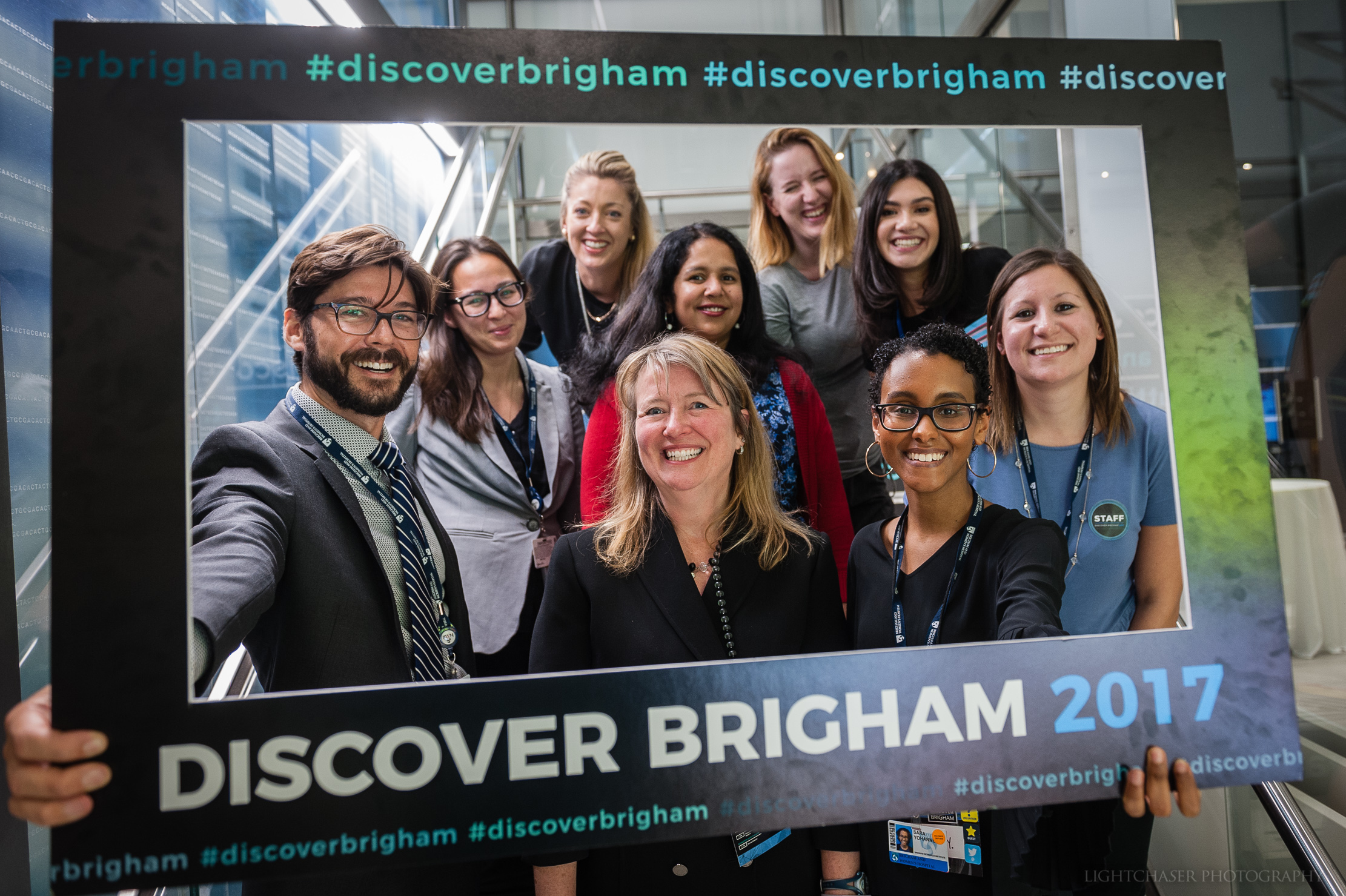Discover Brigham Showcases Innovation from Bench to Bedside

Brigham Research Institute staff celebrate innovation in science, medicine and technology at BWH during Discover Brigham.
If you want to see the face of genetic disease, Wendy Borsari says to look no further than her family tree.
Borsari, 51, has hypertrophic cardiomyopathy – an incurable genetic condition that causes heart muscles to abnormally thicken – as do both of her children. Her 14-year-old daughter, who was diagnosed as an infant, has experienced sudden cardiac arrest four times and underwent a surgical procedure to remove part of her heart muscle to relieve some of her symptoms. There have been eight heart transplants across their extended family.
Despite these hardships, Borsari is optimistic about the future. Participating in a panel discussion on genetics at Discover Brigham on Nov. 9, she told a packed room of attendees that her hope springs from the promise of gene editing and advancements that have been made in understanding her and her family’s disease.
“I would love to think that this disease will stop with my kids – that they are the last ones in this long family history to whom this devastating disease was passed on,” said Borsari, who was joined on the panel by BWH experts, including her physician, Christine Seidman, MD, director of the Cardiovascular Genetics Center.
Borsari was one of several patients who participated in sessions at Discover Brigham, an annual event showcasing innovative science, technology and medicine at BWH. This marked the first year that the event featured patients as speakers, underscoring the powerful possibilities that arise when discoveries advance from the bench to the bedside.
Other BWH patients who spoke included Mary Chum, a panelist in the session on immunotherapy – a treatment that uses components of a person’s immune system to fight disease. Chum, diagnosed with nephrotic kidney disease as a child, shared how a pioneering immunotherapy treatment put her in remission and made her daily life easier.
Drawing approximately 600 attendees, Discover Brigham kicked off with a digital poster session that included hands-on demonstrations with virtual reality, zebrafish and more. The event concluded with an awards ceremony that announced the winners of the BRIght Futures Prize and Brigham Research Institute (BRI) Director’s Transformative Award (see related story below).
“Discover Brigham has become the BRI’s signature annual event. Thanks to the hard work of the BRI team and numerous volunteers, the day was an incredible success,” said Jacqueline Slavik, PhD, MSc, executive director of the BRI. “One of the most striking features of this event is that it brings together scientists, clinicians, patients, donors, industry collaborators and the public around so many exciting topics.”
Discover Brigham showcased BWHers’ expertise in artificial intelligence, genetics, immunotherapy, the microbiome, nursing research, population science, trauma research, and wellness and alternative medicine.
During the wellness and alternative medicine panel, BWH clinicians and researchers provided myth-busting insights about nutrition, sleep, exercise and mind/body practices. JoAnn Manson, MD, DrPH, chief of the Division of Preventive Medicine, noted that nearly all micronutrients – apart from folic acid in pregnant women – are absorbed better by the body through food than supplements.
“There is very little evidence that a dietary supplement will lower your risk for any disease if you’re a healthy adult with a balanced diet,” Manson said. “A healthful diet is tremendously important, and it’s really clear from all the randomized trials that have been done that no supplement is a magic bullet.”

Leave a Reply